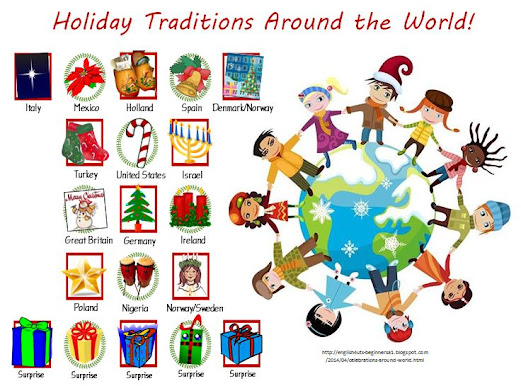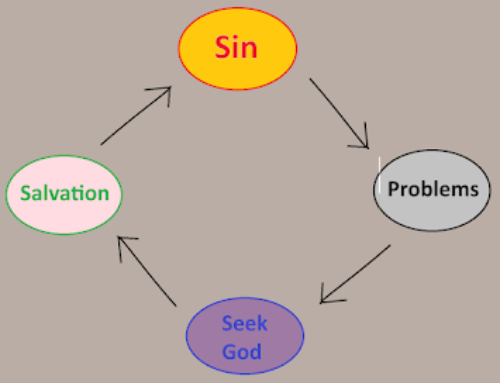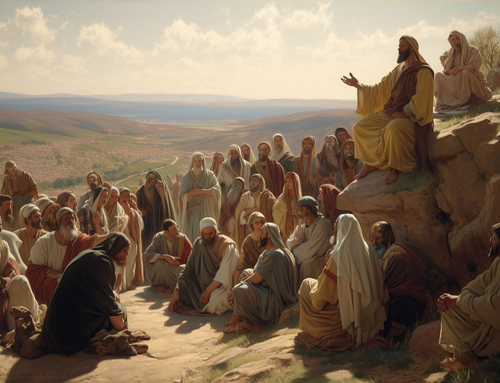With the holiday season drawing to a close, almost everyone has observed some sort of long held tradition over the past couple weeks. America, the melting pot that it is, has citizens that celebrate a number of different holidays during this season including Hanukkah, Kwanzaa, New Year’s Day, and Christmas. Christmas, in particular, is an interesting case as it is like a mixed bag of several different holidays. Of course, for us believers, Christmas commemorates the birth of Jesus Christ. Given Jesus’ importance to us and our faith, there’s no surprise that Christmas is one of the most important holidays to us.
That said, Christmas is no longer a holiday solely celebrated by Christians. Many people who do not even believe in Jesus still celebrate Christmas. As a result, Christmas has a number of attached customs and traditions that don’t have anything to do with Christ’s birth. Does that mean we shouldn’t observe any of those customs or celebrate Christmas at all? Some groups within the body of Christ would say “No,” but what does God say?
Does the Bible tell us that we can’t put up Christmas trees or have Easter Egg hunts or set off fireworks to celebrate the birth of the nation? Of course not, so it’s not really Biblical to say that indulging in those things is wrong. That’s not to say that everything is fair game when it comes to taking up secular customs. For example, some aspects of Halloween should probably be avoided because they are contrary to Christian beliefs.
The dilemma really comes down to us understanding how our actions compare to what God expects from us. Jesus addressed this topic.
Then some Pharisees and teachers of the law came to Jesus from Jerusalem and asked, “Why do your disciples break the tradition of the elders? They don’t wash their hands before they eat!”
Jesus replied, “And why do you break the command of God for the sake of your tradition? For God said, ‘Honor your father and mother’ and ‘Anyone who curses their father or mother is to be put to death.’ But you say that if anyone declares that what might have been used to help their father or mother is ‘devoted to God,’ they are not to ‘honor their father or mother’ with it. Thus you nullify the word of God for the sake of your tradition. You hypocrites! Isaiah was right when he prophesied about you:
“‘These people honor me with their lips, but their hearts are far from me. They worship me in vain; their teachings are merely human rules.” – Matthew 15:1-8
Here we have an example of the Pharisees trying to attack Jesus and his disciples for not upholding Jewish customs. It’s something they did several times across the four Gospels. They sought to discredit Jesus and his teachings by pointing out that he wasn’t adhering to God’s rules. However, Jesus pointed out that their concern was more aligned with following human rules than obeying God’s law.
For Jesus, following or not following a custom wasn’t as important as the reason why people did what they did. That point is even clearer in another encounter.
Another time Jesus went into the synagogue, and a man with a shriveled hand was there. Some of them were looking for a reason to accuse Jesus, so they watched him closely to see if he would heal him on the Sabbath. Jesus said to the man with the shriveled hand, “Stand up in front of everyone.”
Then Jesus asked them, “Which is lawful on the Sabbath: to do good or to do evil, to save life or to kill?” But they remained silent.
He looked around at them in anger and, deeply distressed at their stubborn hearts, said to the man, “Stretch out your hand.” He stretched it out, and his hand was completely restored. – Mark 3:1-5
Refraining from working on the Sabbath is one of the 10 Commandments, so the Pharisees were not wrong to point that out. However, what Jesus tried to get them to see was that doing good is not what God meant by working. Loving and caring for people is never sinful in God’s eyes.
So what does this mean for us? There’s no rule against celebrating customs that weren’t originally born in Christianity. In many cases, Christians can use those customs to fulfill the mission given by God. For example, Thanksgiving isn’t a Christian holiday, but the custom of serving the poor that is practiced by many on Thanksgiving is absolutely something in which Christians should engage.
The Hebrews took on the customs of other groups in the Old Testament, and they were wrong. Why? Because those customs involved idolatry and other actions that broke God’s law. So we should never adopt anything that goes against God or denies him the glory he deserves. However, if the worldly customs don’t contradict with God’s will, then our first instinct shouldn’t necessarily be to avoid them. Instead, maybe the better option would be to use those customs as a way to bring others to Jesus.
Some scholars believe that Christmas is on December 25th because the Romans wanted to usurp pagan celebrations in an effort to ease the conversion of those pagans to Christianity. They didn’t just throw away the customs of others. They tried to repurpose them to serve God instead. As a result, they facilitated the spread of Christianity around the known world. We aren’t really in a position to save the entire world, but if we can use the world’s customs to save even one person or simply to bring glory to God, why shouldn’t we?
Chris Lawyer







